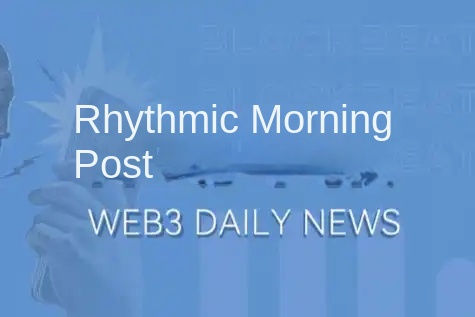Interpreting AAVE Horizon: Unlocking Trillion-Dollar Markets, the Key Puzzle Piece for On-Chain RWAs?
Original Article Title: "The Key Puzzle Piece of On-Chain RWAs? AAVE Horizon Unlocks Trillion-Dollar Markets"
Original Article Author: dddd, Biteye
Horizon Platform Core Mechanism
Platform Architecture and Operating Principles
Horizon, as an independent lending market, is built on Aave Protocol v3.3, focusing on deep integration with RWAs. This platform allows eligible users to use tokenized RWAs (such as money market funds, US treasuries, index funds, or single stocks) as collateral for overcollateralized loans, transforming traditional financial assets into active DeFi liquidity sources. Currently, the total on-chain RWA value has exceeded $260 billion, signaling institutional adoption of tokenization's rapid growth.
The platform's design revolves around two user groups: eligible institutional investors can supply RWA collateral and borrow stablecoins, while anyone can supply stablecoins to earn interest from institutional borrowers. This dual structure creates a unique ecosystem that seamlessly bridges traditional assets with decentralized finance.
Core Problem Addressed
Currently, tokenized real-world assets face a fundamental challenge. While these assets provide institutions with on-chain exposure to traditional assets, they are largely isolated from the DeFi ecosystem, leading to inefficient capital usage, inability to be used as collateral, and effectively being excluded from on-chain capital markets.
Horizon aims to change this status quo by enabling RWAs to directly serve as collateral in DeFi. Institutional investors can unlock stablecoin liquidity without needing to sell or redeem tokenized assets, transforming RWAs into a productive foundation of on-chain finance.
Lending Process Overview
Borrowing Mechanism: Financial institutions or individuals can supply tokenized RWAs (such as assets from Converge or xStocks) to the Horizon market. When the RWA tokens are deposited as collateral, Horizon mints a non-transferable aToken to represent that collateral position. Users can borrow stablecoins based on a set percentage of their collateral's value, with each collateral type having its own Loan-to-Value (LTV) parameter.
Supported Assets: RWA-eligible users can borrow a variety of assets, including Ripple's stablecoin (RLUSD), Aave's decentralized stablecoin (GHO), common stablecoins such as USDC, and other assets like USDT or DAI. These stablecoins have various use cases in the DeFi ecosystem, including earning yield (APY) in lending markets, decentralized exchanges (DEX), and other protocols, significantly increasing the expected return.
Lending Process: Providing stablecoins to Horizon does not require any permissioned restrictions. Stablecoin liquidity providers (LPs) can earn yield by lending out assets, where users supply their chosen stablecoin to the market and receive an aToken representing their deposit. This aToken can earn yield and be withdrawn at any time.
Strategic Partnerships and Ecosystem Support
Horizon's success relies on a strong network of partners, including institutions such as Circle, Superstate, Centrifuge, Ant Digital Technologies, Chainlink, Ethena, KAIO, OpenEden, Ripple, Securitize, VanEck, and WisdomTree.
During the launch phase, Horizon supports various high-quality RWA collateral options. Circle's USYC offers qualified investors the opportunity to earn USD returns by investing in a diversified portfolio of high-quality, short-term US Treasury Bills. Superstate's USTB and USCC provide yield opportunities to eligible investors through short-term US government securities and cryptocurrency arbitrage strategies. Centrifuge's JRTSY and JAAA offer yield opportunities through tokenized exposure to US Treasury Bills and AAA-rated collateralized loan obligations.
Converge, as a settlement layer for traditional finance and digital dollars, is supported by Wormhole and Chainlink; xStocks allows tokenization of the S&P 500 index fund, individual stocks like Apple/Nvidia, and US Treasuries, enabling operations on Solana and other chains. These assets are not just 1:1 tokenized but also offer ownership and composability advantages of DeFi, allowing users to engage in lending, liquidity provision (LP), exchanges, and other operations.
Risk Management and Technological Innovation
Comprehensive Risk Framework
As the primary risk provider for Aave, Chaos Labs has partnered with Aave Labs to build Horizon's comprehensive risk infrastructure, ensuring institutional-grade reliability and operational scale. Unlike native crypto assets, RWAs require handling complex scenarios such as market closures, custody coordination, and redemption risk.
Chaos Risk Oracles are integrated into Horizon's governance and execution layers, able to automatically adjust parameters based on real-time market conditions, such as interest rates, loan-to-value (LTV) ratios, and liquidation thresholds. These oracles continuously monitor utilization, volatility, and redemption risk, cross-validate NAV against external benchmarks (such as Bloomberg indices and government bond yield curves), and enforce dynamic buffers and time-based liquidation logic during market closures.
The risk framework includes: agent-based simulations to model user behavior, protocol stress, and extreme redemption scenarios; real-time dashboards and alerts tracking collateral composition, NAV updates, market access windows, and lock-in periods; risk scenario modeling to predict asset performance under stress; and custom liquidation mechanisms considering issuer constraints, custody delays, and qualified liquidator access.
Technical Security Measures
Horizon employs multiple protective measures to ensure platform security. Smart contract execution involves deterministic operations with no matching logic, order book, or quote mechanisms. The non-custodial architecture means users retain control, and Aave Labs cannot move funds. aTokens are designed to be non-transferable to respect issuer transfer restrictions.
The platform also leverages Chainlink's SmartData technology, first deploying NAVLink to provide accurate net asset values for tokenized RWA collateral and achieve real-time, over-collateralized stablecoin borrowing within a compliant DeFi framework. Pricing accuracy is ensured by RedStone, while risk oversight is supervised by a dedicated entity.
Revolutionary Implications for Traditional Finance (TradFi)
Traditional financial institutions are typically confined to a "sandbox" environment, unable to fully harness the benefits of DeFi such as top-tier risk-adjusted opportunities and composability. Horizon has changed this landscape, providing TradFi with a gateway into DeFi.
Enhancing Asset Liquidity and Unlocking Opportunities
Traditional institutional assets (such as government bonds or stock funds) are often static with limited liquidity. Horizon allows these institutions to supply tokenized RWA to the Aave platform, then borrow against these assets in exchange for stablecoins without selling the assets. Institutions can borrow against tokenized RWA to lend stablecoins, access the $167 billion DeFi market, and transform traditional assets from static holdings into active liquidity.
Users can borrow stablecoins and earn a higher APY across multiple protocols, enjoying yields much higher than traditional bank deposits or bonds. This model provides TradFi with a more efficient way to utilize capital, reducing intermediaries (such as bank wire transfers and brokers) and lowering costs.
Bridging a Trillion-Dollar Market
With players like BlackRock entering the scene, Horizon is bridging TradFi and DeFi, driving the tokenization of a trillion-dollar market. The platform, through institutional-grade design (including risk management provided by Chaos Labs), makes it easier for TradFi to adopt without concerns about compliance or security issues.
The Far-Reaching Impact on Decentralized Finance (DeFi)
DeFi faces challenges such as accessibility, regulatory issues, liquidity expansion, and reputation risks (due to hacks and exploits). Horizon helps address these challenges, driving the maturity and mainstream adoption of DeFi.
Liquidity Expansion and Ecosystem Maturity
Through regulatory adaptability, a more accessible new lingua franca, and better detection methods, DeFi is maturing. Horizon enriches DeFi's asset pool by introducing RWA, where users can deposit RWA to borrow stablecoins, thus increasing the overall TVL. Aave's TVL on Ethereum has already reached $590 billion, with Horizon's launch further elevating this figure.
The platform enhances DeFi's overall liquidity, improves its reputation, attracts more traditional participants through institutional-grade risk management, and supports multiple use cases for stablecoins, enhancing DeFi's capital efficiency and drawing more institutional funds, potentially addressing liquidity fragmentation.
Pioneering Innovation Design Space
Aave leads in DeFi with its credibility and institutionalized approach, with Horizon being a natural extension, driving deep integration of RWA with DeFi. Unlike traditional DeFi lending, Horizon optimizes for the unique features of RWA, such as RWA following a restricted schedule (e.g., daily or weekly NAV updates, market closure periods), which requires the protocol to handle non-24/7 liquidity.
Future Outlook and Market Significance
Horizon represents a new design space for RWA in DeFi, expected to expand to more chains and asset classes. Chaos Labs' risk infrastructure ensures its reliable expansion, while partners like Converge and xStocks will drive further innovation.
Overall, Horizon represents the convergence of TradFi and DeFi, potentially unlocking trillions of dollars in opportunities and enhancing protocol security through automation and real-time monitoring. For institutional investors, Horizon offers unprecedented capital efficiency; for DeFi users, Horizon opens up new pathways to access institutional-grade borrowers, creating a true win-win situation and driving the entire ecosystem towards a more mature and inclusive direction.
Welcome to join the official BlockBeats community:
Telegram Subscription Group: https://t.me/theblockbeats
Telegram Discussion Group: https://t.me/BlockBeats_App
Official Twitter Account: https://twitter.com/BlockBeatsAsia
 Forum
Forum

 Finance
Finance
 Specials
Specials
 On-chain Eco
On-chain Eco
 Entry
Entry
 Podcasts
Podcasts
 Activities
Activities
 OPRR
OPRR








